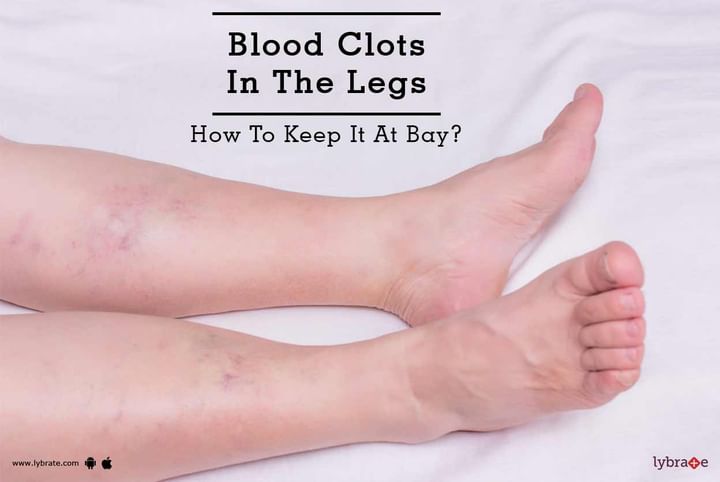Blood Clots In The Legs - How To Keep It At Bay?
A blood clot in the leg is termed as Deep Vein Thrombosis or DVT. This blood clot can be fatal because it usually blocks the passage of blood to the heart by damaging the one way valves of the veins. This can also reach other organs like the lungs in which situation the case becomes complicated and may also lead to death. There are various ways of preventing the onset of these clots. Follow these points to know more.
* Blood Thinners: Prolonged hospital stay and a major surgery like joint replacement can lead to blood clots in the legs or DVT. Therefore, it is imperative to ask your doctor about a prescription for blood thinners which can help in better blood flow despite minimal motion in the legs or stiffness.
* Compressions Stockings: If you have been in the hospital for a prolonged period or suffering from leg paralysis, then the risk of blood clots is greater than most others. You can make use of compression stockings which will help in preventing clots by holding the area tight so that the blood is forced to pump and flow. These should be used every time you are admitted to the hospital.
* Exercise: It is important to keep moving in case you are travelling in a long flight that is over four hours long. Also, you can try certain mild exercises in case you have a long standing condition of pain or cramping in the leg muscles and joints. From simple toe flexes to muscle strengthening exercises like the heel or towel hook, you can ensure that the tightening action makes your muscle firm so that the blood clots do not have a chance to form. You may also need to lose weight in case you are overweight so that you can alleviate the risk of these clots.
* Water: Staying hydrated is something that we all need to follow in any case, but it is especially important if you are risk of developing blood clots in the legs. Drinking plenty of fluids is a natural way of thinning the blood, especially if you have been in bed or travelling for prolonged periods.
* Loose Fitting Clothing: You may want to wear loose fitting clothing when you are travelling or in the hospital so that you do not end up unnecessarily compressing an area in a way that will be detrimental for the blood flow there. Wearing loose clothing ensures that the blood flow carries on as per its normal routine without any blockages.
It is important to remember the above points so that you keep blood clots in the legs at bay.



+1.svg)
